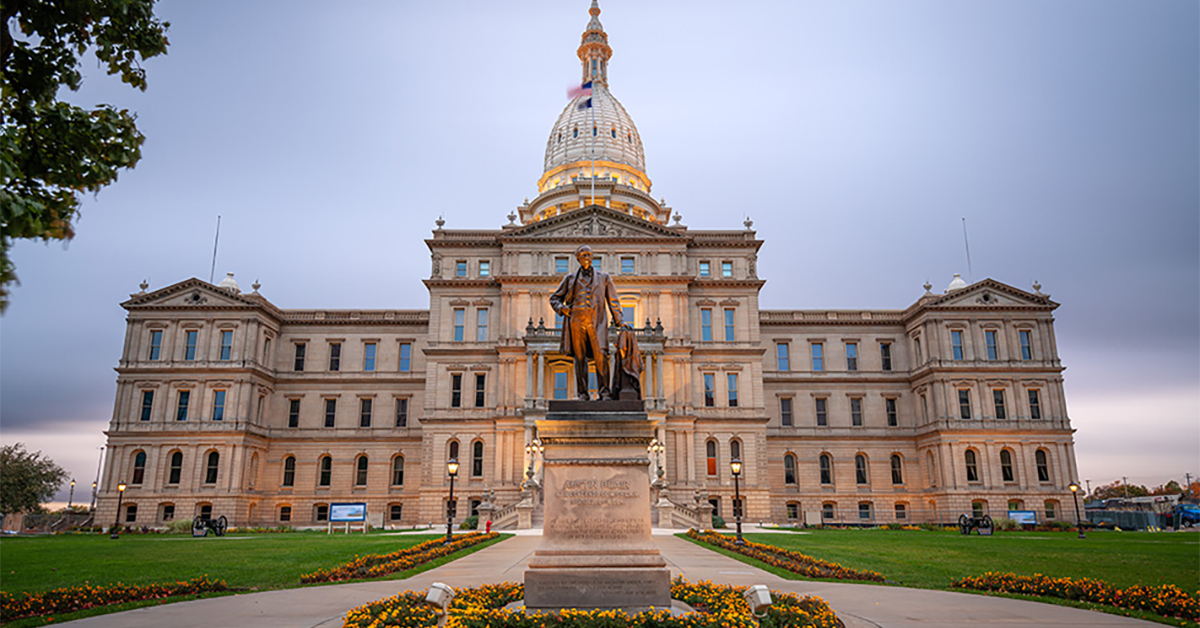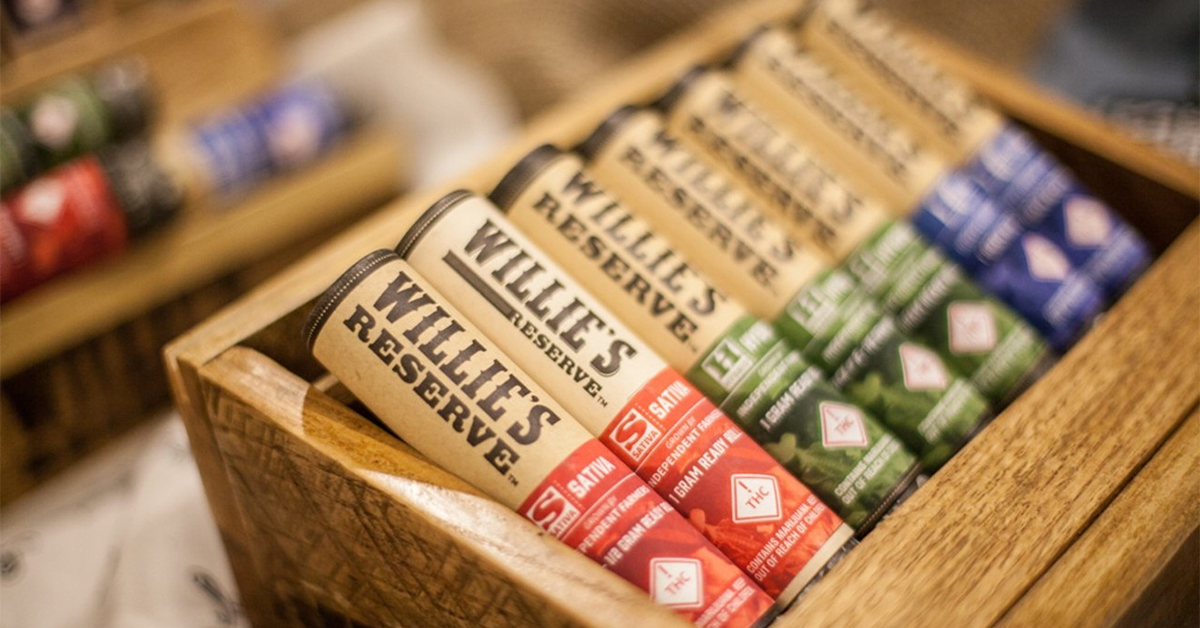Exploring Michigan: Top Cities Embracing Cannabis Culture

Michigan, known fondly as The Mitten State, has a rich tapestry of cities that celebrate the relaxed and invigorating culture of cannabis. As the state blooms with diverse cities, each offers a unique experience for cannabis enthusiasts. Dive into our detailed guide exploring the top six cannabis-friendly cities in Michigan and what makes them special for those seeking both adventure and serenity.
Marquette: Nature and Cannabis in Idyllic Synchrony
Marquette, beautifully nestled in the Upper Peninsula, is an emblem of natural beauty and serenity that Michigan offers. Surrounded by the grandeur of Lake Superior's shores, this city provides the ideal backdrop for those wanting to combine their love for nature and cannabis. The region's climate, with its brisk lakefront breezes, has made it an enticing place for outdoor enthusiasts looking to immerse themselves in the rich tapestry of Michigan's landscapes. From the Presque Isle Park to Sugarloaf Mountain, there are ample spots to indulge in peaceful contemplation while enjoying your favorite strain.
Moreover, Marquette's small-town charm is palpable in its local establishments. Local cafes and eateries, many of which have embraced the state's cannabis culture, offer a cozy environment for both residents and visitors. Whether it's enjoying a lakeside picnic, visiting the town's historic sites, or attending the local events that celebrate the community's spirit, Marquette ensures that every experience is enriched by the harmonious blend of nature and cannabis culture.
Ann Arbor: The Intellectual Heartbeat with a Cannabis Rhythm
Ann Arbor, often regarded as the cultural epicenter of Michigan, strikes a fine balance between academia and a thriving cannabis community. The University of Michigan not only adds an academic vibrancy to the city but also brings in a diverse population, adding to the city's dynamic spirit. The historic landmarks, art galleries, and theaters are interspersed with modern establishments that acknowledge and promote the benefits of cannabis. From the Nichols Arboretum to the Michigan Theater, there's an air of progressiveness that is uniquely Ann Arbor.
The city also offers an eclectic mix of cannabis-themed events, workshops, and forums. This has made Ann Arbor a nexus for those seeking to combine intellectual pursuits with a love for cannabis. Local dispensaries often host events and seminars, emphasizing the blend of tradition and modernity that characterizes the city. As you stroll down the streets of Ann Arbor, it's hard not to feel the pulse of a city that is forward-thinking yet deeply rooted in its values and traditions.
Traverse City: Serenity Meets Scenery
Traverse City, often referred to as the jewel of Northern Michigan, offers an unparalleled experience of beauty and relaxation. Its pristine beaches, coupled with the shimmering waters of Lake Michigan, provide an idyllic setting for those wanting to bask in nature's splendor. The city's renown as the Cherry Capital is evident in its local festivals, markets, and eateries, offering fresh, locally-sourced produce. Traverse City is not just about cherries and beaches; its vineyards, with tours and tasting sessions, add another layer to its appeal.
For the cannabis enthusiast, Traverse City presents a holistic experience. The city's embrace of the cannabis culture is seen in its local dispensaries, which are known for their quality products and knowledgeable staff. There are also wellness retreats and workshops that focus on the therapeutic benefits of cannabis. As you traverse the city, from its downtown area to its scenic outskirts, you'll find a community that values the natural beauty that surrounds it and the holistic benefits of cannabis.
Detroit: The Metropolis of Cannabis Evolution
Detroit, the iconic Motor City, is a testament to Michigan's resilience, innovation, and cultural depth. With its storied history in the realms of music, from Motown to techno, and art, the city has always been a hotbed for creativity and progress. Detroit's revitalized downtown district, with its skyscrapers, historic theaters, and art deco buildings, speaks volumes of a city that's constantly reinventing itself. The Detroit Riverwalk, a scenic promenade along the Detroit River, offers a picturesque escape from the urban hustle, perfect for those moments of introspection with your favorite cannabis strain.
Detroit's burgeoning cannabis scene is another testament to the city's adaptive spirit. Numerous dispensaries, ranging from boutique outlets to expansive centers, dot the cityscape. These establishments often go beyond just sales, providing education, hosting events, and promoting responsible use. The city's musical legacy and cannabis culture often intertwine, with many events celebrating both in unison. Detroit, in its vastness, offers a multifaceted experience, ensuring that the cannabis connoisseur feels right at home amidst its urban vibrancy.
Hamtramck: A Mosaic of Community, Culture, and Cannabis
Hamtramck, a city within a city, stands out with its unique cultural imprint. As an enclave within Detroit, it offers a blend of historic Polish roots with a plethora of other ethnic influences, creating a mosaic of traditions, foods, and festivities. The city's rich history is evident in its architecture, from charming houses to historic churches. Music lovers will find solace in Hamtramck's vibrant scene, with venues hosting genres from punk rock to traditional Balkan beats.
The cannabis culture in Hamtramck is as diverse and inclusive as its community. Local dispensaries, often family-run, offer a personalized touch, ensuring every visitor feels welcomed and informed. The city's events, from music festivals to art walks, often incorporate cannabis-friendly themes, reflecting the community's acceptance and appreciation of the plant. As you wander through the streets of Hamtramck, the sense of community is palpable, making it a unique destination for those seeking a blend of culture and cannabis.
Kalamazoo: Where Academia and Cannabis Harmony Resides
Kalamazoo, a spirited college town, offers a vibrant blend of academic rigor and leisurely pursuits. Home to Western Michigan University, the city is a hub of innovation, art, and youthful enthusiasm. The downtown district, with its blend of historic buildings and modern establishments, buzzes with activity from dawn to dusk. Museums, galleries, and theaters in Kalamazoo offer a rich cultural experience, ensuring there's always something to pique one's interest.
For the cannabis enthusiast, Kalamazoo is a treasure trove. Local dispensaries offer a vast range of products, catering to both the novice and the connoisseur. The city's embrace of the arts extends to its cannabis culture, with events celebrating both in harmony. Nature lovers can find solace in the city's parks and nature reserves, providing serene spots to relax and indulge. Whether you're exploring its art scene, enjoying a coffee in a local café, or attending a university event, Kalamazoo promises an experience where cannabis seamlessly integrates with the city's youthful and dynamic spirit.
Each of these Michigan cities carves a distinct narrative in the ever-evolving tapestry of cannabis culture. Whether you're seeking a tranquil retreat or an urban buzz, Michigan promises a journey worth cherishing for every cannabis enthusiast. For those keen on diving deeper into what the state offers, be sure to check out our comprehensive MI marijuana buying guide for invaluable insights and tips.
15-Year-Old Faces Adult Charges in Macomb County Marijuana Robberies

In a recent surge of criminal activities targeting marijuana dispensary drivers, a teenager from Clinton Township has been placed at the center of these events. The youth, aged just 15, is now facing serious charges as an adult for his alleged involvement in these incidents.
Law enforcement authorities have reported that the teenager is believed to be responsible for three distinct robberies of dispensary drivers that took place in Macomb County throughout October. Following a thorough investigation, the young individual was officially charged on Tuesday, October 24th. The charges leveled against him include three counts of armed robbery and an additional two counts related to felony firearm possession.
The gravity of the charges reflects the seriousness with which authorities are approaching such crimes, especially when connected to the rapidly growing marijuana industry in Michigan. This serves as a reminder to businesses and consumers about the importance of safety in this sector.
Given the weight of the accusations, a bond was set at a substantial $300,000. Furthermore, the court has mandated several conditions to ensure public safety and the well-being of the accused. Among these, the teenager has been ordered to undergo a comprehensive mental health evaluation. The court has also explicitly instructed him to avoid any form of contact with the victims of the alleged robberies. If the bond amount is posted and the teenager is released, he will be required to wear a steel-cuff GPS tether, ensuring his movements can be tracked at all times.
The incidents in Macomb County highlight the growing concerns surrounding safety in the marijuana industry. As the sector continues to expand, it underscores the necessity for rigorous safety measures and public awareness.
This news serves as an essential update for all stakeholders in Michigan's cannabis landscape, from consumers and businesses to regulators. Ensuring that the industry operates safely and responsibly remains paramount as Michigan navigates the complexities of its blossoming marijuana market.
Michigan's Fresh Legislation Bridges Gap for Tribal Cannabis Ventures

In an effort to unify Michigan's marijuana market and provide equitable opportunities for all, Governor Gretchen Whitmer sanctioned a two-bill package on October 19th. This new legislation facilitates the inclusion of tribal cannabis enterprises into Michigan's regulated marijuana landscape.
The bills in focus, Senate Bill 179 and Senate Bill 180, successfully navigated the Legislature earlier in October. Central to this legislation is the facilitation of compacts between Michigan and its sovereign tribes on matters of cannabis regulation and taxation.
Under the aegis of this legislation, tribal cannabis enterprises can transact within the state's regulated domain. However, this is contingent upon them applying Michigan's 10% excise tax on their sales. In addition, the legislation paves the way for tribes to be eligible for allocations from Michigan's Marihuana Regulation Fund, mirroring the same rates as local governments. Notably, this fund annually disburses 15% of its residual balance to counties and municipalities, this distribution being determined by the volume of cannabis retailers and microbusinesses in their jurisdiction.
The architect of S.B. 179, Senator Jeff Irwin from Ann Arbor, articulated that the primary objective of this legislation is to dismantle the existing barriers between Michigan and its tribal communities. This not only facilitates seamless transactions between state-sanctioned and tribal cannabis enterprises but also aims to amalgamate them into a single, cohesive system. As Senator Irwin expressed at a Regulatory Reform Committee hearing, "We'd no longer have two silos but one system for the trade in cannabis here in Michigan."
A significant voice in the discourse around this legislation has been Whitney Gravelle, the President of the Bay Mills Indian Community. This community, stationed in Brimley, has the distinction of being the first tribe in Michigan to legalize adult-use cannabis. Furthermore, they pioneered the opening of a commercial cultivation unit and a dispensary within their territory.
In her address, Gravelle underscored the limited participation of tribal businesses in the state's marijuana economy and emphasized the challenges they faced due to their exclusion from the Marijuana Enforcement Tracking and Compliance system. Gravelle stated, "Presently, Bay Mills Indian Community licenses and regulates our marijuana activity within our tribal nation's jurisdiction. However, the lack of data exchange with the state implies that during product issues or recalls, our community remains uninformed unless through public channels." She asserted that the new bills would bridge these communication gaps, thereby bolstering public health safeguards for both the state and its tribal communities.
This legislative endeavor garnered widespread support. Among its proponents were the Grand Traverse Band of Ottawa and Chippewa Indians, the Saginaw Chippewa Indian Tribe of Michigan, the Michigan Cannabis Industry Association, the Marshall-based cannabis enterprise Common Citizen, and the Michigan's Cannabis Regulatory Agency.
With Governor Whitmer's endorsement, this duo of bills was immediately enacted, marking a new chapter in Michigan's marijuana narrative.
How Legal Cannabis is Changing Michigan's Educational Scene

In recent times, the discourse surrounding the legalization of marijuana has gained prominence, particularly as states like Michigan witness burgeoning sales at legal cannabis dispensaries. While advocates of the movement emphasize the robustness of sales controls, concerns persist, especially regarding the accessibility of legally purchased marijuana to the younger generation.
A Shift in Students' Perception
A visit to Hazel Park High School in Michigan painted an interesting picture. Junior Landon Schlack and senior Dayanna Reed, among others, commented on the noticeable shift in students' attitudes towards marijuana. With the emergence of dispensaries at nearly every corner in Michigan, the ease of accessibility is undeniable. Although Schlack and Reed personally abstain, they've observed frequent 'pot parties' amongst their peers.
Driving through Michigan, it's hard to miss the numerous billboards advertising cannabis. For instance, Hazel Park alone boasts of eight active cannabis stores, with a ninth one soon to be operational.
Addressing Cannabis in Educational Institutions
The ripple effect of this growing cannabis culture has penetrated school environments. In a bid to combat this, Hazel Park High School has implemented vaping sensors in bathrooms, designed to detect THC, marijuana's psychoactive component. When activated, these sensors alert security teams, leading to immediate action.
Yet, with the evolving forms of marijuana, detection isn't always straightforward. School Resource Officer Detective Xavier Piper highlighted the challenges, especially with detecting marijuana scent on students who reside in homes where cannabis is used legally.
In terms of incidents, Principal Tammy McHenry reported a rising trend. The school recorded 23 marijuana-related incidents in 2021 and 29 in the following year. In the current year, as of September, there have already been six cases. Projections suggest a potentially significant increase by year-end.
A Mixed Picture Nationwide
While Michigan grapples with these challenges, broader studies from reputable sources such as the National Institutes of Health and the Journal of the American Medical Association present a nuanced view. Some findings indicate either a negligible effect or even a decline in youth marijuana consumption post-legalization.
Considering other states, since Colorado's inaugural retail cannabis store opened approximately a decade ago, the state's Department of Education noticed fluctuating trends in school suspensions linked to marijuana. Concurrently, California's Department of Education has reported a decrease in student cannabis usage since its 2016 legalization.
Local Discipline Measures and Need for More Resources
Back in Michigan, amidst the apparent rise in cannabis usage among students, stringent disciplinary measures are in place. A 10-day suspension awaits Hazel Park students caught using, followed by an intensive review process determining their readmission.
Despite these repercussions, and even after witnessing peers adversely affected by potent cannabis strains, many students persist. This trend underscores the need for more comprehensive educational programs, akin to past initiatives targeting alcohol abuse.
Interestingly, the relationship between Hazel Park Schools and cannabis business proprietors is harmonious. The latter actively contributes to community welfare. Furthermore, a federal grant has recently been secured by Hazel Park, aiming to enhance marijuana-centric educational initiatives for students.
Willie's Reserve Marks Its Presence in Michigan Dispensaries

Legendary musician and well-known cannabis enthusiast, Willie Nelson, is set to introduce his renowned cannabis brand to Michigan this Wednesday, marking a significant expansion of Willie's Reserve.
Michigan is proudly stepping up as the eighth state in the nation to feature flower products from Willie's Reserve, an esteemed cannabis brand initiated by Nelson back in 2015. The strains available from this brand, touted as "Willie-Worthy", are notably potent, with THC content ranging from a formidable 24% to an impressive 30%.
In a move that remains consistent with his long-standing values, Nelson has opted to collaborate with small-scale growers within Michigan to nurture the flower. As the co-founder of Farm Aid, a commendable non-profit initiative that has raised millions to bolster family farms, Nelson's dedication to supporting the farming community and its agricultural endeavors is nothing short of legendary.
In the endeavor to supply dispensaries with this sought-after flower, Willie's Reserve is partnering with Aardvark Industrees, a reputable name based in Lansing. Hilary Dulany, a partner at Aardvark Industrees, shared insights on their collaboration model, stating, "This approach serves a dual purpose. On one hand, it addresses the anticipated high demand for the product, and on the other, it emphasizes our commitment to championing small independent growers in Michigan. Collaborating with these growers not only guarantees a product that lives up to the 'Willie-worthy' standard but also ensures we remain agile in responding to market demands."
Interestingly, Aardvark Industrees has also associated itself with Cheech's Stash, another cannabis brand, conceived by famed comedian and actor, Cheech Marin.
Starting this Wednesday, consumers can look forward to finding Willie's Reserve in over 15 dispensaries scattered across the state. Among these are notable names such as Stone Depot (Jackson), Green Stem (Niles), Verts Neighborhood Dispensary (Traverse City), Mood Center Line (Center Line), Planet 420 (Flint), Endo (Adrian), and all Puff locations spanning cities like Bay City, Traverse City, Hamtramck, and more.
Highlighting the ethos of their collaborations, Dulany added, "We are naturally inclined towards brands that echo pioneering spirits and are willing to venture into the uncharted territories of cannabis. It's paramount for us that the brands we nurture and partner with resonate with our personal and professional principles."
It's worth noting that Willie Nelson joins a steadily growing roster of celebrities who have ventured into the cannabis industry. This includes personalities like Tommy Chong, Jim Belushi, Seth Rogan, Martha Stewart, Whoopi Goldberg, Mike Tyson, and musicians such as Carlos Santana, Melissa Etheridge, and Lil Wayne, to name a few.
Unraveling Michigan's Path to Marijuana Legalization and Equity

At the heart of Ann Arbor, the University of Michigan Diag has held an annual event known as Hash Bash since 1972. It's a gathering symbolizing the state's evolving stance towards marijuana. For nearly half a century, enthusiasts congregated, sharing a collective vision that one day their cause would find legal endorsement in Michigan. Their dream turned to reality in November 2018 when Michigan residents cast their votes in favor of recreational marijuana legalization. As a new era dawns, with a buzz about national legalization in the air, it's imperative to reflect upon the journey so far and the milestones yet to be achieved.
Support us as a patron to access this exclusive article.
While we're reluctant to put content behind a paywall, we value our patrons by offering exclusive content just for them. Rest assured, our core mission of providing unbiased news stories remains accessible to all. Our aim is to deliver informative content with minimal ads, and your support means the world to us.
View our Patreon

 Helpful Links
Helpful Links